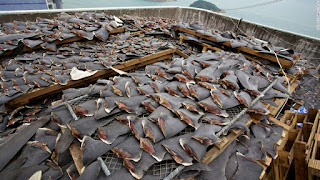In conversation with Fiona’s post this week about making our
own decisions, I would like you all to see this College Humor video (if you
haven’t already) and sigh with me in recognition of the truth it spills.
Fair warning: the rest of this post is going to be pretty biased as I have come to these opinions throughout years of my own research and exposure to the topic.
With this post, I seek to address an issue that has weighed on my heart for at
least the past twenty formative years of my life: non-human animal welfare, especially the welfare of industrialized farm animals. I
recognize that this concern may not take precedence for all of you, and I also
understand that, for some of you like me, this issue and all of its
components may be an overwhelming (and even triggering) one that you already
feel educated about – and don’t need a gruesome reminder of. Wherever you fall
on this spectrum, I encourage you not to shy away from the information in the
links presented; however, I will tag those with violent imagery as gore because I
understand how traumatizing they can be.
This Mercy for Animals video presents the facts, and sums up my thoughts on the problem quite nicely. I hope it also explains where the annoying, opinionated vegan stereotype (Q: How do you find out if someone is vegan? A: Don't worry; they'll tell you.) comes from.
Here are two more Mercy for Animals videos (without the cushy cartoon imagery) that expose further the cruelties food animals must undergo to sustain our appetites:
Tragic. Stomach-turning. Heart-wrenching. And if that isn't enough to get you to think about what it means to eat animals, chew on this. My response to this information has been to take meat off my menu (with the exception of my time in Thailand, where it would have been rude not to eat the food my host families had worked hard to prepare for me, I have been a vegetarian for seven years), but I have never felt fully satisfied with that decision. For the reasons I am a vegetarian, I should really be a vegan. This (largely internal and individual) process has looked like this: stumble onto some appalling shit that humans have done in pursuit of profit, cry a lot, watch a documentary [I haven't seen all of these, but they're on my list, so I'm putting them here: Earthlings, Forks Over Knives, Vegucated, Food Inc., and Cowspiracy - it is my understanding all of these films contain gore.], cry a lot more, get really mad, find and compile a bunch of vegan recipes with the intent to cut out all animal products, and then...I don't do it. It's too hard. You have to learn how to cook, and then actually cook. You have to eat vegetables! Primarily vegetables! I have always said that I'll do it [insert next "convenient" span of time here], and then I don't. I feel guilty because I think of the amount of emotional and physical pain, torture, and bloodshed that carries on indefinitely for me to be able to eat a milkshake or an omelette. So guilty that I stunt myself into not trying, which is the worst place to be for my own mental well being, and, of course, the non-human animals whose lives I'm making a living hell by continuing to eat parts of them.
Recently, it has finally clicked for me that sustainable growth is the result of a gradual, mindful shift in personal habits. There are so many reasons why I have been wanting to adopt veganism (seriously, look at the health benefits!); now is the best time to take that first little step. I have a plan that involves written goals and a pretty solid system of support (though more is always welcome!), and I'm excited to use what I've been learning all quarter to finally help me actualize the life I've been visualizing for years.
There is so much to talk about with this, but I've chosen to keep it close to my personal journey with food animals, and I would love to hear your story. Do you believe the hype around all of this? Are the examples I've chosen to have us look at isolated incidents, or are they indicative of what and who is going into your bacon, egg, and cheese McMuffin? Have any of these articles/images changed your mind about eating animals, or did you already have a clear idea of what was going on? General responses?
Thanks for reading. I look forward to talking this over with you in class on Thursday.



